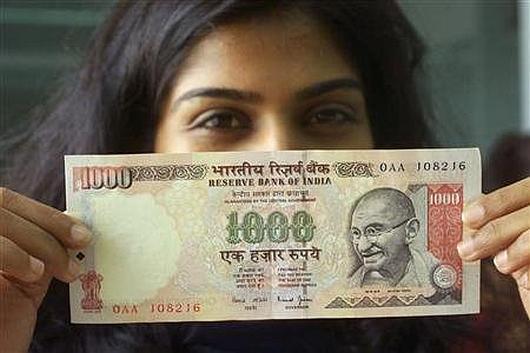They say learning is a process that never ends, but our habits are formed in our childhood and youth, the imprints of which we carry with us to our graves. Reading, writing and arithmetic are skills we pick up in schools, but the management of money isn’t something teachers cover alongside fractions and the history of India’s freedom struggle. Yet, as we blunder along life’s pathway, it is the lessons we learned at home that stand us in good stead. Every housewife is, after all, the finance minister of her own home, and it’s from her that her children learn how to handle their own households.

For me, growing up in a middle-class Mumbai household, there were certain lessons that I hope I have been able to follow, and will be able to pass on to my own children one day.
Money is earned, not given
We have a tendency not to value that which is given too easily. I have seen friends who received generous amounts as pocket money spend recklessly, lacking a sense of restraint, precisely because they never saw the money they had as their own. My parents ensured that was not the case in our house. My siblings and I were given pocket money, yes, and enough to pay for public transport to and from school / college, but anything beyond that was linked to our academic performance or other household chores. This meant we felt like we had to work for the money we had, and valued every paisa.
The importance of choices
Every rupee spent on something is a rupee not spent on something else. The importance of making wise choices about limited resources was drilled in us fairly early. A tantrum in the shopping district meant we could get a cold drink out of our mother, but then we could forget about an ice-cream later. That toy that ‘everyone’ had – well I could get that now, or I could wait a few months and get an imported toy, brought specially for me from abroad! Choices are important, and if we don’t learn that there are consequences to our choices, it is too easy to make the wrong ones.
Sharing information about family budgets
Too many parents make the mistake of shielding their children completely from money matters. It is a good idea to gradually let your children know about the family’s resources, what the income is, where the expenditure goes. By the time we are in our teens, we had an idea of the family budget and tried to make little budgets of our own. Whether we were able to follow them faithfully is another matter, but the discipline helped!
Borrowing as a last resort
In my college days I had picked up the rather unfortunate habit of living beyond my means. The difference between expenditure and income was made up by borrowing from kind friends (whose parents had not taught them not to lend, just as mine had omitted warning me not to borrow). It would end in embarrassment with a friend coming home to seek a repayment of some money he had lent to me and my having to ask my father to pay it on my behalf. The importance of living within my means was definitely drilled into my head then! The thing I still recall to this day from the rather terrific lecture I received were:
“Keep borrowing from your friends, and your list of friends will thin rather quickly.”
Since then, as you can imagine, my only borrowing has been on my credit card – and I pay that in full before they send an agent to my home!
Opening our bank accounts
We all had bank accounts by the time we were thirteen. My father banked with the nationalized bank that was in the building across the road from our flat, and for our first birthday in the ‘teen’ years, we got a bank account with Rs 100 deposited in it. It was strange to see money as just a number in a passbook, but as the money grew over time, I learned a healthy respect for it – and for the underlying institution of banking that served to put that money to good use.
This was perhaps the most invaluable lesson of all, for it taught us that ‘saving’ is not about putting your money in a big strong box and never looking at it, but in putting it to work for you, making it grow on its own like a plant.
It’s been a couple of decades since then, but I still maintain that very same bank account, not just for sentimental reasons, but as a reminder of how little lessons like these, can grow into a body of knowledge that served as my career for the better part of my working life. Also, it pays a good rate of interest!
I hope these lessons are as useful to you as they have been for me! Happy learning, happy investing!
































Money makes the mare go!
To bind the mare around, it is necessary to take a hold of the money you have. First thing first, no! You do not make money out of easy methods. You have to sell a part of you out of you to extract whatsoever amount you are making. In that case, it is necessary that you make a judicious use of it. Also, that parents must ensure a check on their kids and the way they spend their money in early days!